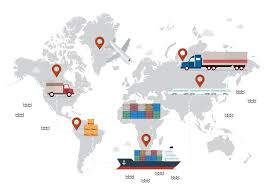Turkey is anticipated to come out of the coronavirus-driven crisis with a V-shaped recovery, and will converge its potential growth, the country’s treasury and finance minister said on Tuesday. While Turkey’s the loss of lucrative tourist trade and mediocre domestic demand still post huge risks to a swift recovery, the Erdogan Administration has another, more ambitious plan to kick-start it. A Turkish-US business council is projecting Turkey as a trading alternative to China with the help of influential Republican Senator Lindsey Graham, a close associate of President Donald Trump.
Berat Albayrak cheer-leads captains of the economy
Addressing the general assembly of the Banks Association of Turkey in Istanbul, Berat Albayrak said the government clearly observes the recovery in economic activity.
“Turkey’s exports increased 24.6% in first 21 days of June compared to same period of last year,” he said.
A V-shaped recovery is characterized by a quick and sustained recovery in measures of economic performance after a sharp economic decline.
Albayrak added employment package that the government is working on will continue to strongly reset the economic recovery process in the coming period.
Turko-American relations thaw, is it because…..
Regarding Turkey’s contemplated new role in global supply chains, “The growing rift between the United States and China creates significant opportunity for geopolitical cooperation. Turkey and the United States would both benefit economically,” said a Turkish businessman, according to Asia Times.
Criticism of China’s handling of the coronavirus pandemic has widened the gap between Washington and Beijing and sparked calls for diversification of China-centric global supply chains.
It has also raised hopes in Ankara, suffering its first economic contraction in a decade, that the decoupling of the US and China could create common interests between the US and Turkey.
Turkey intends to attract EU investment too, as it is the logical place to center new and shorter supply chain for the continent. However, the diplomatic relations between the partners are ice-cold, as Macron opposes Turkey’s role in the Libyan War, while EU members are generally very uneasy about ongoing human rights violations.
Capitalizing on the emerging “ New World Trade Order”
“The pre-pandemic global economy was built on a single supply chain, with China at its core,” said Turkish Vice-President Fuat Oktay in May.
“For countries like Turkey, with our robust manufacturing sector and our young population, this will be an economic opportunity,” he added.
Turkish efforts to improve relations with Washington come amid a series of perceived breakthroughs.
On Monday, shares in Halkbank went up 9% after the US federal prosecutor overseeing the court case against the bank was fired by staunch Trump ally, Attorney General William Barr.
Divergences in the Middle East also appear to be easing. Military victories of the Turkey-backed Libyan government are expected to dampen US enthusiasm for the rogue commander Khalifa Haftar.
Turkey has also moved to improve long-strained relations with America’s top Middle East ally Israel. Ankara last month authorized twice-weekly cargo flights by El Al, Israel’s national carrier, between Istanbul and Tel Aviv. Two of those flights ferried medical supplies from Turkey to the United States. The flights to Turkey were El Al’s first in 10 years.
Erdogan betting his chips on Trump
Erdogan is banking on his personal relationship with Trump that in the past has produced White House decisions that overrode opposition from the Pentagon and other branches of his government.
“To be honest, after our conversation tonight, a new era can begin between the United States and Turkey,” Erdogan said without offering further details.
Gateway to Africa
Erdogan spoke to Trump as Turkey was projecting itself as an important US trading partner.
The June 24 TAIK webinar, entitled ‘A Time for Allies to be Allies: Turkish American Global Supply Chain,’ in which Senator Graham is scheduled to speak alongside former US Senator David Vitter of Louisiana, is part of an effort to position Turkey as a key player in reducing US dependence on Chinese supply chains.
Foreign Lobby Report, a Washington-based online news service, reported that TAIK, working with lobbying firm Mercury Public Affairs, had approached Graham in March with the proposition that Turkey could serve as the United States’ gateway to Africa.
“As we strive to move forward, we at TAIK are already contemplating how we can reignite the economy post-pandemic,” TAIK chairman Mehmet Ali Yalcindag wrote in a letter to Graham.
“Joint ventures in Africa could be an exciting part of this plan. Not only would we be helping fragile economies that will need assistance in recovering, but we also would be striking a blow against Chinese designs in Africa and forging closer economic ties between Turkey and the US.”
Yalcindag recommended in a separate letter last month to US Commerce Secretary Wilbur Ross “an initial focus on LNG (liquified natural gas) and agriculture imports from the US.”
“At the same time, Turkey could boost exports of white goods and automotive parts — diversifying America’s supply chain away from China, a stated goal of the Trump Administration.”
Pointing to the fact that US retail giant Walmart had already started sourcing products in Turkey, Yalcindag added: “Now is the time to reinforce the climate of cooperation and solidarity, China-dependent firms in the supply chain are … turning their eyes to different countries, Turkey being among them.”
Vitter, the former senator scheduled to speak in the TAIK webinar, backs a push by Louisiana Natural Gas Exports Inc to provide Turkey with “long-term, secure, competitively priced access to Turkey’s LNG terminals, gas pipeline and storage facilities” that would make the country less dependent on Russian and Iranian imports.
At the end, while Turkey’s quest is logical given its diversified industrial base, cheap labor force and large concessions offered to FDI, Erdogan’s one-man rule, and absence of any clarity about taxation and regulatory regimes pose a huge obstacle to it is economic ambitions.
You can follow our English language YouTube videos @ REAL TURKEY: https://www.youtube.com/channel/UCKpFJB4GFiNkhmpVZQ_d9Rg
And content at Twitter: @AtillaEng
Facebook: Real Turkey Channel: https://www.facebook.com/realturkeychannel/
